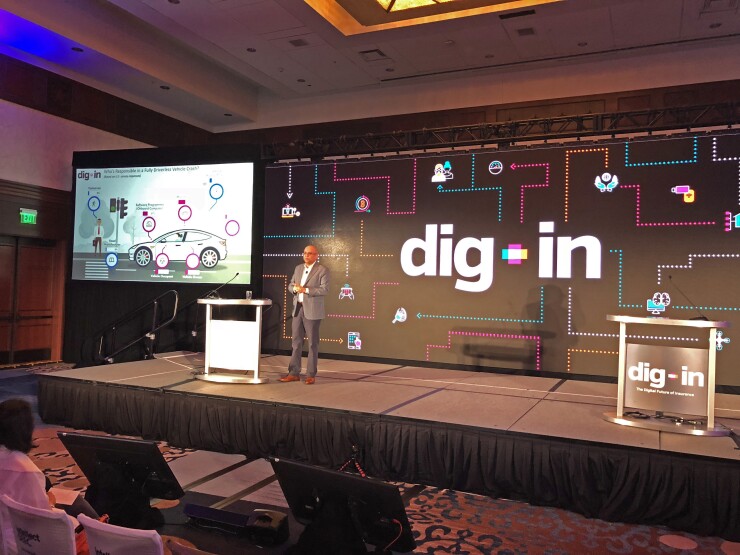There are two schools of thought when it comes to insurance disruption, according to Gaurav Garg, CEO of AIG’s personal insurance business: Companies can revamp the front-end user experience, while leaving established underwriting, pricing and risk selection processes in place; or evaluate full technology stacks, with the intention of rebuilding them.
The latter presents the best opportunity to reach today’s customers on their terms, Garg said to his industry peers at Digital Insurance’s Dig | In: The Digital Future of Insurance conference in Austin, Texas, on May 15. In the race for the best user experience, insurance still lags behind banking, telecommunications and online retailers, he added.

“Today’s customers expect everything at their fingertips,” he said. “We live in an age where consumers can speak to Alexa or just Google the weather and their upcoming commute.”
Podcast:
Even insurers’ biggest advantage — data — brings its own set of pros and cons, Garg added. While information on customers is more easily available for the purposes of underwriting and claims, external risk scenarios are also changing rapidly. Ransomware attacks, global warming — resulting in more devastating natural catastrophes — and even terrorism is exposing insureds to new paradigms of risk.
“All this change will mean personal insurance will be the most disrupted,” Garg said. “The question is: Will traditional insurance be able to actually fill the kind of gaps that exist in the way customers want?”
To ensure that AIG can fill those presumed holes in coverage, Garg created a brand new position in 2017: head of market disruption, which is currently held by Matan Slagter, an employee of the company since 2014.
Finally, with access to years of internal and external data, the onus is on insurers to “know their customers” by using emerging technologies, such as AI and the Internet of Things to prevent claims from ever happening, Gaurav said. If a loss does occur, sensor data, drones and the sharing economy can be leveraged to make the experience more tolerable.
“I believe insurance can go from a necessary evil to a pleasant experience,” he concluded. “That’s where we are headed.”





